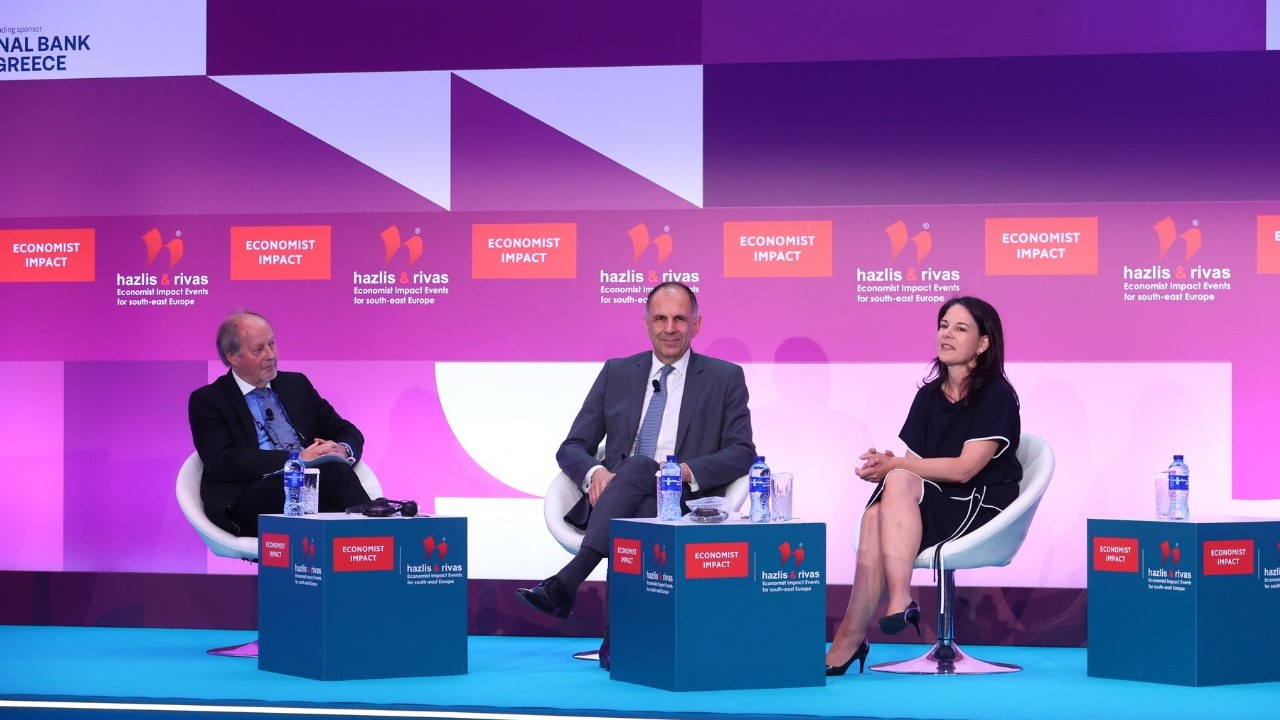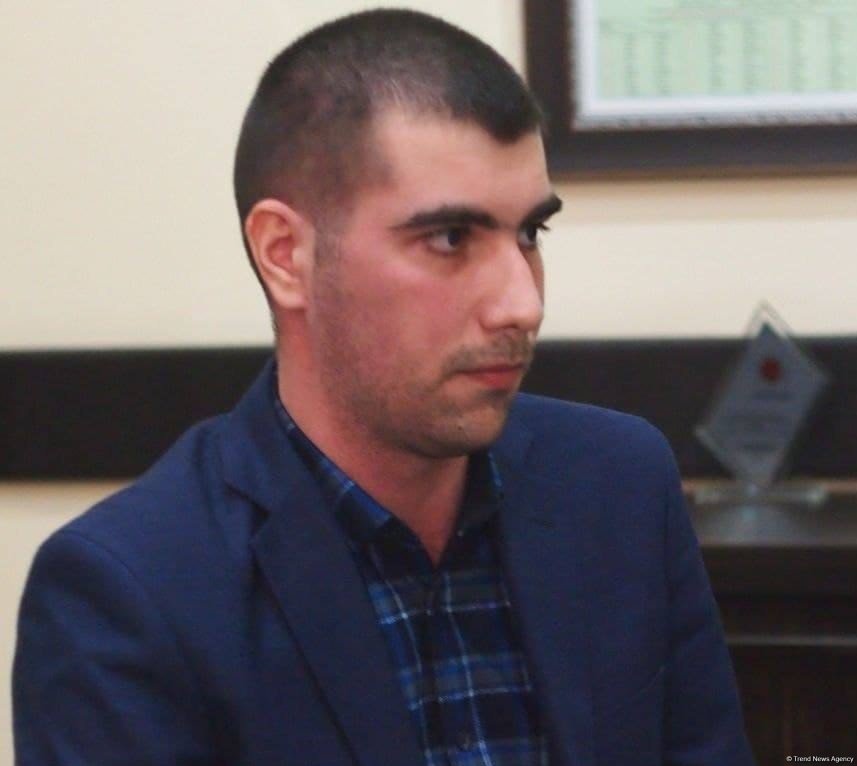BAKU, Azerbaijan, July 2. In a wide-ranging and deeply reflective discussion in an international policy forum, Greek Foreign Minister Giorgos Gerapetritis emphasized the urgent need for a return to multilateralism, strategic coherence, and honest political discourse amid growing global instability, Trend reports via the Greek MFA.
Speaking on the sidelines of a major international policy forum, Gerapetritis highlighted the erosion of rational dialogue and warned against the perils of unilateralism, calling instead for a renewed commitment to a united and geopolitically active Europe.
“We are living in an era of major challenges,” Gerapetritis said. “Violence is everywhere in our lives, and the situation continues to deteriorate because no challenge is confined to one country or region anymore.”
Citing interconnected crises from climate change and food insecurity to armed conflict and artificial intelligence, he stressed that every shock has global ripple effects. Yet, according to the minister, what the international community is lacking most today is the ability to deliberate.
“We have lost our capacity to sit down and reason together to build consensus,” he noted, lamenting the weakened post-war vision of cooperation and unity. “Anyone who has participated in the Foreign Affairs Council knows how difficult it has become to reach unanimity.”
Reflecting on Europe’s origins after World War II, Gerapetritis hailed the transformation of former adversaries into partners who built a union based on shared values. He warned, however, that such unity cannot be taken for granted.
Responding to a question about the Nobel Peace Prize awarded to the European Union, which is implicitly opposed to past U.S. President Donald Trump, Gerapetritis did not fail to emphasize a global trend that he regards with alarm:
“Multilateralism is losing ground. Unilateralism is gaining. This is not in humanity’s best interest.”
The minister expressed optimism over the appointment of German Foreign Minister Annalena Baerbock as President of the UN General Assembly, saying it is a step toward restoring a rules-based global order.
“We need to reactivate the core principles of multilateralism. Without a strong international legal and security architecture applied uniformly, we cannot build a sustainable political future,” he said. “We lack vision and strategic direction today.”
Gerapetritis added that despite Europe’s internal differences, it remains capable of becoming a strong and credible pillar on the world stage, provided it speaks with one voice.
He also reaffirmed the importance of transatlantic ties, calling them “essential” to global balance and peace.
“The transatlantic alliance, rooted in the 1950s, has been a cornerstone of global prosperity. We must continue to work together, multilaterally and in a balanced manner.”
The discussion then turned to defense spending, as many NATO members—except Spain—committed to allocating 3.5% of GDP, with an additional 1.5% in reserves. Gerapetritis acknowledged the difficulty of balancing security with social protection.
“This is a problem of democracy,” he said. “We can’t have everything—we must prioritize. The European view is clear: a strong welfare state is part of our cultural DNA. That will not change, even if adjustments are needed.”
He referenced former European Commission President Jean-Claude Juncker’s famous quote: “We all know what we must do, but if we do it, we won’t get elected.”
“That’s the democratic price we pay,” Gerapetritis commented. “The challenge is saying the right thing without losing democratic legitimacy. Honesty with society is essential, and it's something that’s missing today.”
He expressed frustration over the increasing spread of misinformation, particularly in Greece, describing it as a daily battle that undermines public trust and policy effectiveness.
“We must return to the fundamental values of democracy and defend them against falsehoods and manipulation,” he said.
According to Gerapetritis, the EU has entered its third major phase: the age of geopolitical Europe. From its post-war roots as an economic bloc, to a more political union in the 1990s, today’s Europe must now think and act geopolitically, he said.
“Being a geopolitical power requires a holistic view, beyond just economics. Europe’s strength lies in its collective ability to mobilize people through deep cultural and historical roots.”
He warned, however, that this new phase has emerged abruptly, largely driven by Russia’s war against Ukraine. But in that crisis, Europe has found new resolve.
“We now have a stronger Europe. We have moved away from excessive dependency—look at our shift from 50% reliance on Russian gas to under 10% today. That’s strategic autonomy.”
Gerapetritis concluded with a passionate call to build a legacy of purpose, rooted in Europe’s values, culture, and commitment to international law.
“I believe in the European vision. I believe in the West. As Aristotle said, ‘The whole is greater than the sum of its parts.’ When united, we multiply our power. Despite our differences, we must not fear the future—we must inspire the younger generations.”
He emphasized that whether through climate action, economic policy, or human capital development, the focus must now shift to leaving a meaningful legacy.
“The future is there, and we must face it with openness and resolve.”
Stay up-to-date with more news on Trend News Agency's WhatsApp channel







